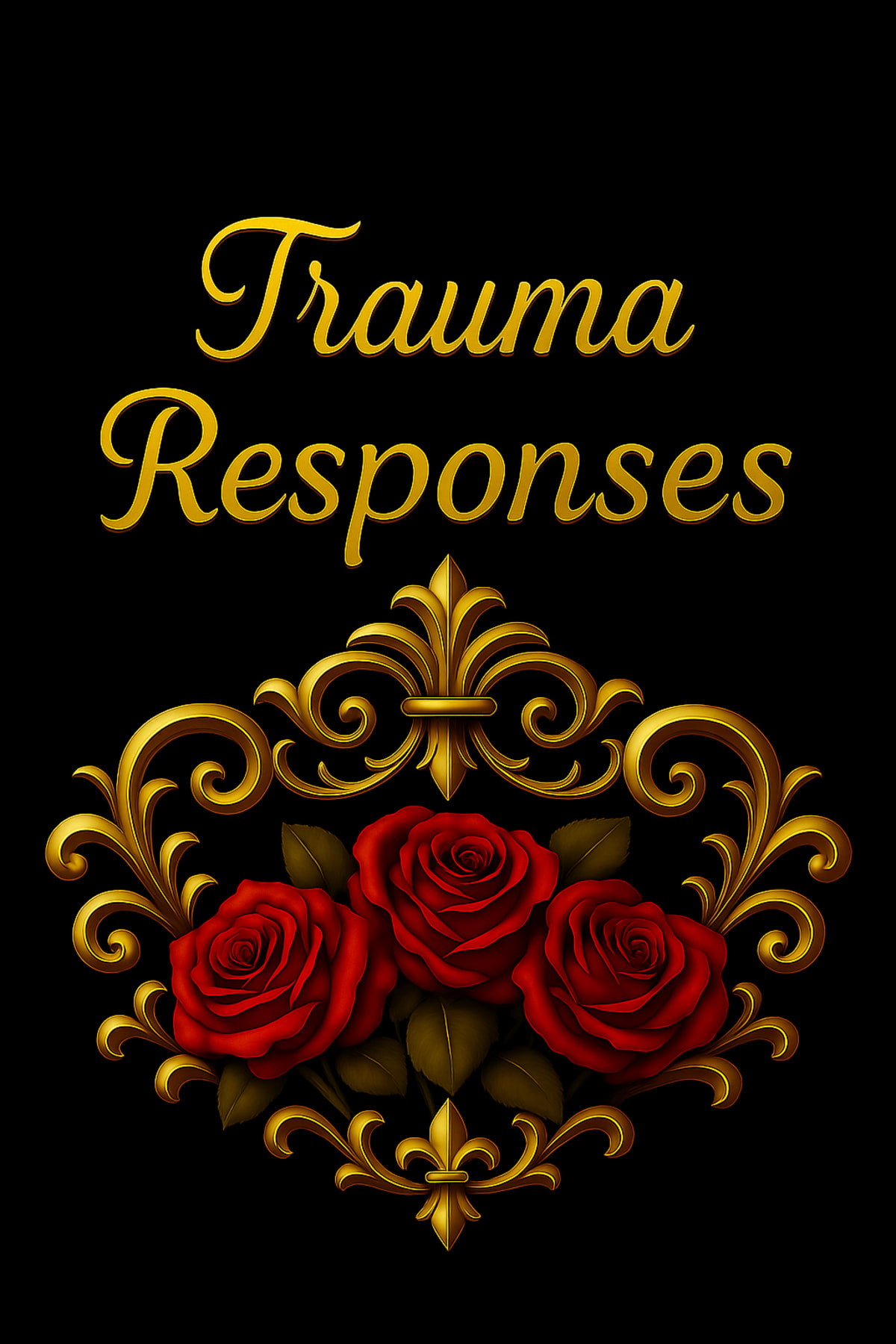Welcome back to The Healing Hollow. If you’ve ever looked back on a moment of fear and wondered, “Why didn’t I do something?”
this post is for you.
Trauma responses are not choices. They’re instinctive survival strategies wired into the nervous system. In our latest episode of The Healing Hollow, we explore the four core trauma responses: Fight, Flight, Freeze, and Fawn, and how they often appear in everyday life.
The Four Core Trauma Responses
Fight- Fight isn’t always about physical aggression. It can mean standing your ground, resisting control, or even showing explosive anger. This is the body’s way of saying, “I will survive by pushing back.”
Flight- Flight is the urge to escape, physically or emotionally. It can show up as avoiding conflict, ghosting relationships, or pouring yourself into work. The body seeks safety by getting away.
Freeze- Freeze is often misunderstood. This response looks like going silent, locking up, or mentally checking out. Many survivors blame themselves for “doing nothing,” but freeze is not weakness, it is a deeply wired survival strategy.
Fawn- Fawning is about appeasing others to reduce danger. It can look like people-pleasing, keeping the peace at all costs, or minimizing your own needs. It’s the nervous system’s attempt to create safety through agreement.
Beyond the Big Four
Trauma doesn’t always show up in ways that are easy to label. It can surface through patterns like:
- Procrastination – linked to fear of failure or rejection
- Addiction – a way to numb emotional pain
- Lack of focus – a result of hypervigilance or mental overload
- Learned helplessness – conditioned feelings of powerlessness
- Phobias – triggered fear from past trauma
- Social anxiety – fear of judgment rooted in rejection
- Fear of commitment – avoidance tied to past betrayal
- Promiscuity – sometimes coping with sexual trauma or reclaiming control
These behaviors are not flaws in character. They’re coping mechanisms—your body’s way of surviving what it couldn’t control.
Types of Trauma
- Single-Incident Trauma – one major event with lasting impact
- PTSD – ongoing symptoms that continue after trauma
- Complex Trauma – repeated or long-term exposure, often in relationships or childhood
You didn’t choose your trauma response. You chose survival and that is never your fault.
To hear personal stories and deeper insights, tune in to the full episode on The Healing Hollow Podcast.
Until then, remember this: you are not broken. Stay True to yourself and remember that you are always worthy of Love & Healing.
